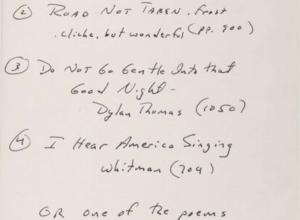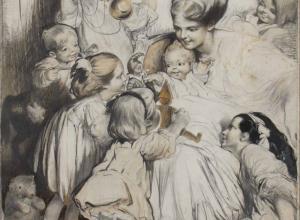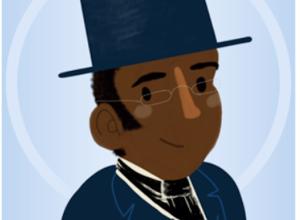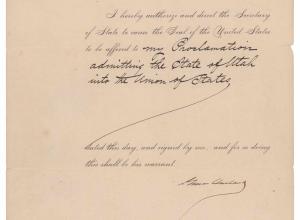Medieval Poet John Gower is Back on the Case
 Medieval poet John Gower reprises his unlikely yet likable role as narrator and detective in Bruce Holsinger's new novel, The Invention of Fire (William Morrow, $26.99). A follow up to last year's A Burnable Book, this tale begins when sixteen corpses are found clogging a London privy channel. Gross! Holsinger, a medieval scholar at the University of Virginia, revels in this kind of pungent, atmospheric detail. We quickly learn how these poor souls met their gruesome end: "Handgonnes. A word new to me in that moment, though one that would shape and fill the weeks to come. I looked out over the graves pocking the St. Bart's churchyard, their inhabitants victims of pestilence, accident, hunger, and crime, yet despite their numberless fates it seemed that man was ever inventing new ways to die."
Medieval poet John Gower reprises his unlikely yet likable role as narrator and detective in Bruce Holsinger's new novel, The Invention of Fire (William Morrow, $26.99). A follow up to last year's A Burnable Book, this tale begins when sixteen corpses are found clogging a London privy channel. Gross! Holsinger, a medieval scholar at the University of Virginia, revels in this kind of pungent, atmospheric detail. We quickly learn how these poor souls met their gruesome end: "Handgonnes. A word new to me in that moment, though one that would shape and fill the weeks to come. I looked out over the graves pocking the St. Bart's churchyard, their inhabitants victims of pestilence, accident, hunger, and crime, yet despite their numberless fates it seemed that man was ever inventing new ways to die."
Gower's sleuthing sidekick, Geoffrey Chaucer, reappears too, as do the city's many maudlyns (prostitutes) and crooked officials. As in A Burnable Book, Holsinger succeeds where many historical novelists fail, in the creation of unique characters--e.g., Cripplegate hermit Piers Goodman, boy cutpurse Jack Norris, and steely widow Hawisia Stone--and sharp, approachable dialogue. Holsinger risks flaming (no pun intended) in taking up the history of guns and its attendant violence, even within the framework of a mystery set more than six hundred years ago, and yet his agenda, if he has one, is obscured.
The Invention of Fire is substantial and smart. Those who enjoy historical fiction will delight in its layered, well-researched narrative.
P.S. Should any reader be interested in the "real" Gower, I spied a 1532 edition of his De Confessione Amantis in Justin Croft's booth at the New York Antiquarian Book Fair earlier this month.
















